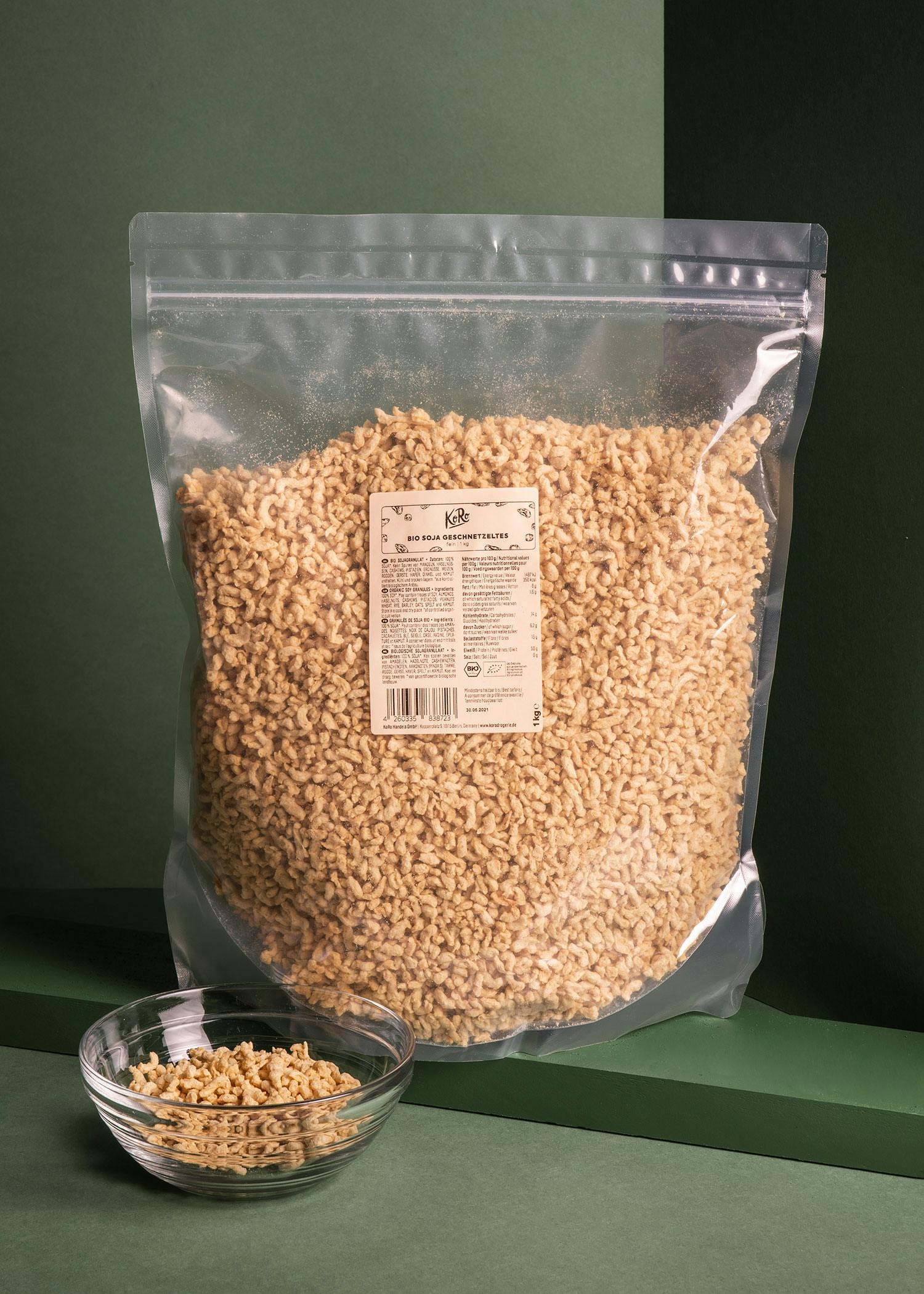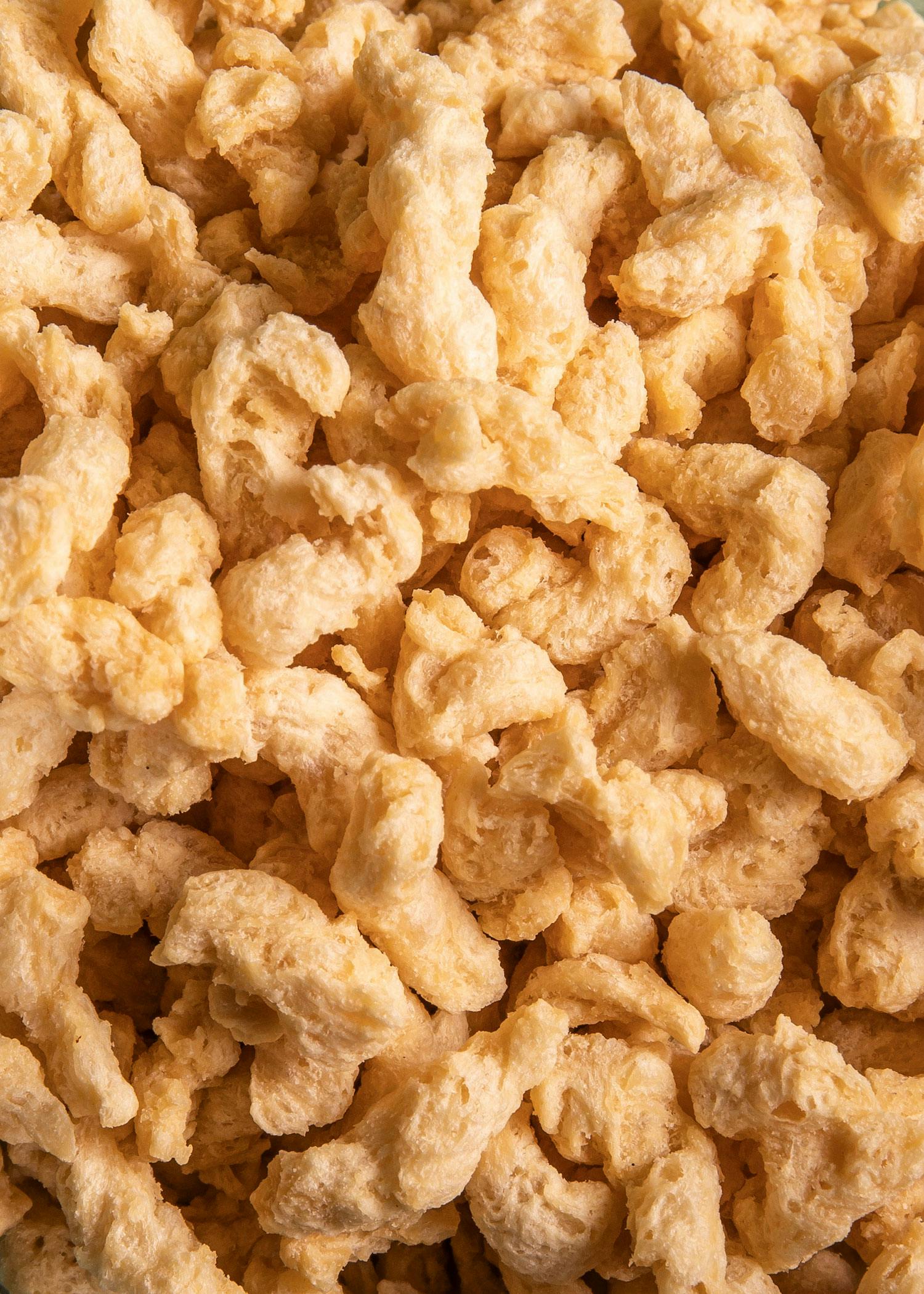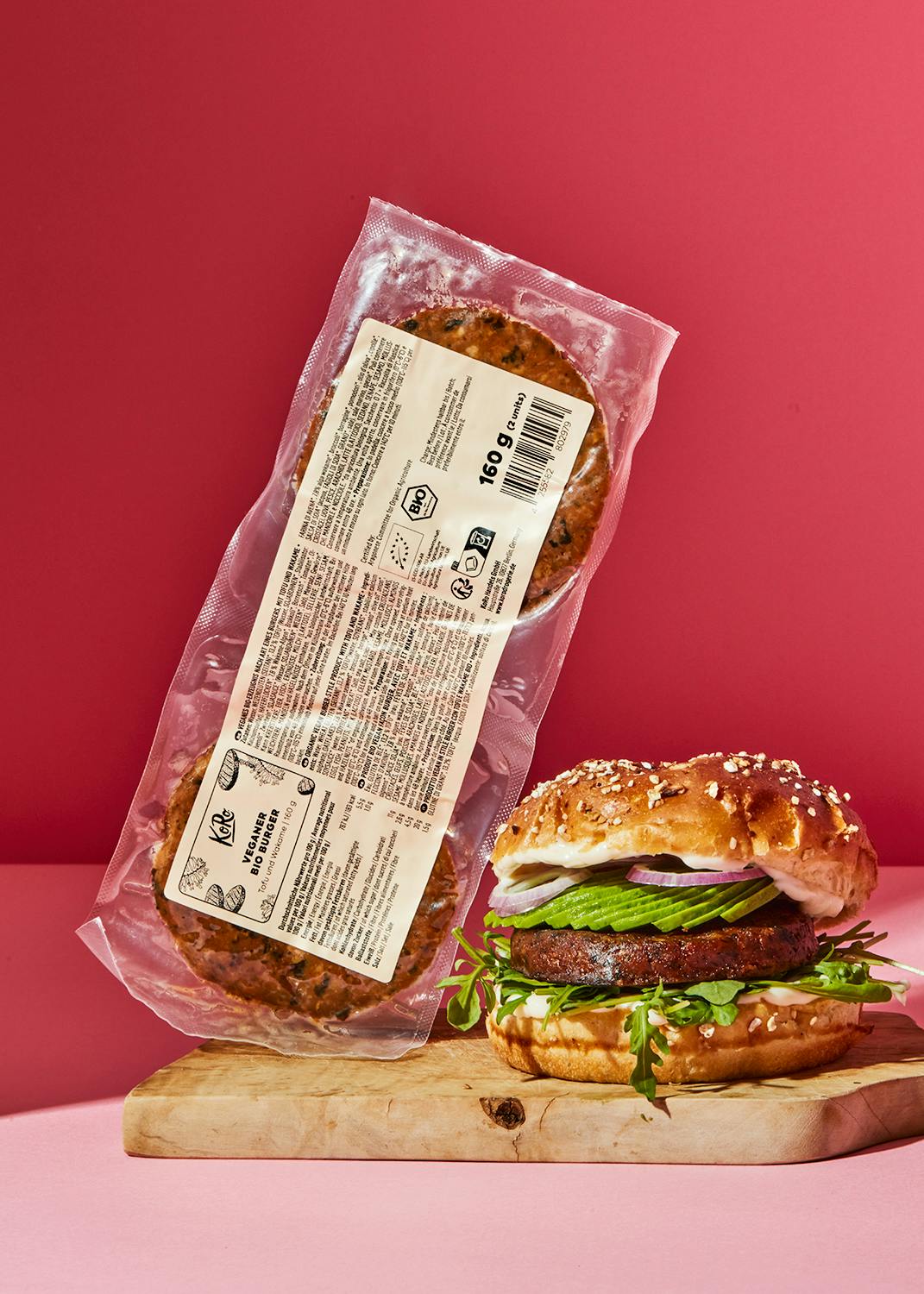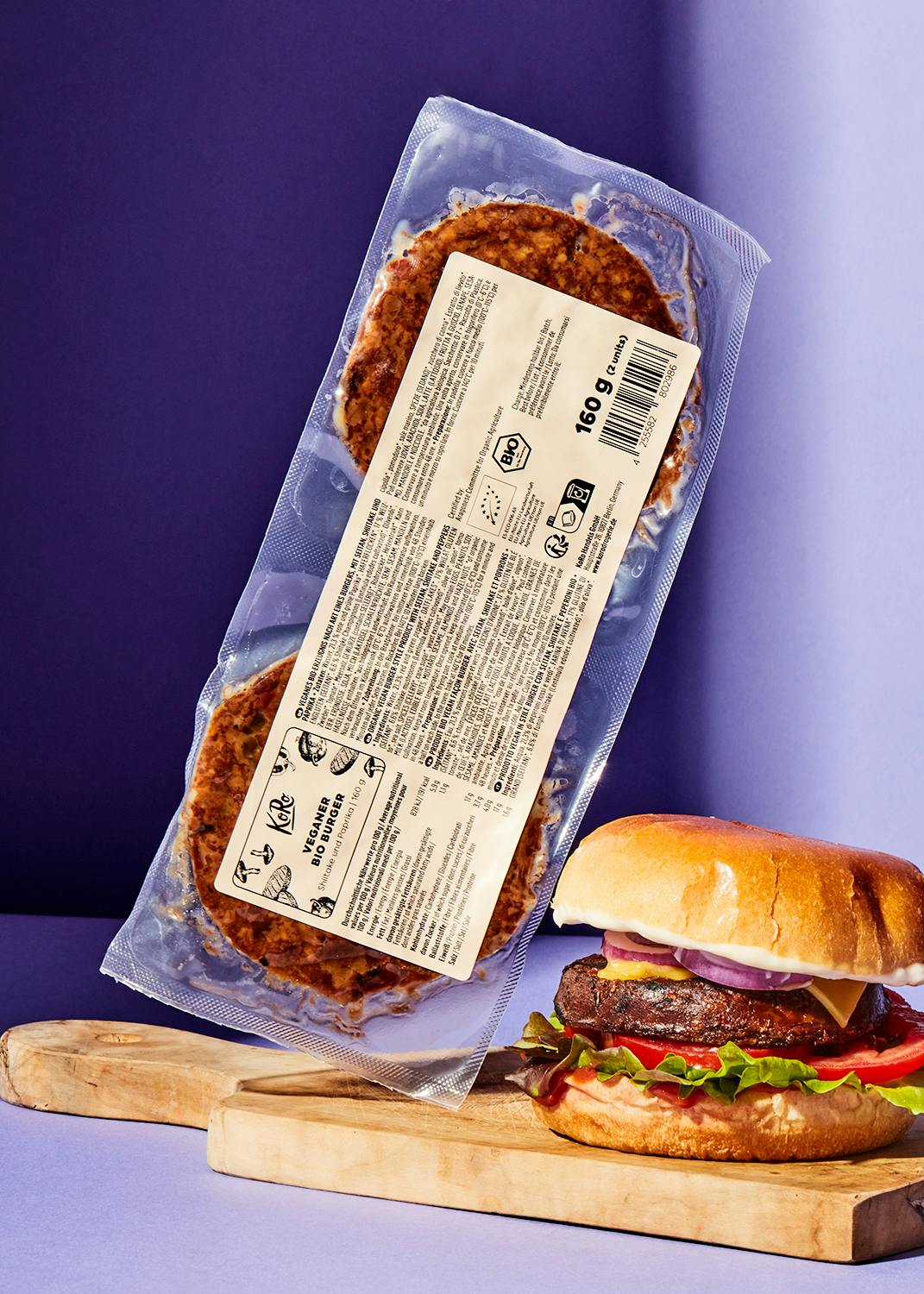New normal?
Just like the others, you put together the perfect burger from buns, sauces, patties, lettuce, tomatoes, gherkins and onions. Oh, it can be so easy. Your mouth waters at the sight of the burger and your burger is great - but then comes the first comment: "Why are you eating substitute products?" or "You might as well eat real meat" followed by "But you do know that the rainforest is being cut down for your soy patty?" or "Well, it's not healthy, with all the chemicals in it." and "Where do you get your protein from?". Who isn't familiar with the good old prejudices against substitute products? These prejudices are usually caused by a lack of knowledge and not everyone means it in a bad way. It is also often the case that there is a certain curiosity behind it. For all family members who are seriously interested in learning more about meat substitutes and want to break down their prejudices, we have listed common prejudices here and refuted them. We also draw on the statements of doctor Aljosha Muttardi, who debunked four nutritional myths with KoRo in July of this year. So you can counter them with facts at the next family meal, if necessary.
Preconception 1: If you don't want to eat real meat, then you don't need a meat substitute.
Let's first clarify the basic idea behind veganism: Veganism is a purely ethical movement. It is therefore about boycotting all animal suffering and speaking out in favor of alternatives. Creating plant-based alternatives supports this enormously, as the consumption of animal products can be prevented without compromising taste or texture. Because food is associated with many emotions. You probably have that one favorite dish from your childhood that you wouldn't want to miss. No wonder, because many vegans grew up on an omnivorous diet and some of them like the taste of meat. In order not to have to cut this nostalgic feeling and the many recipes with meat out of their lives and to be able to enjoy them at the same time, many use plant-based alternatives. When vegans decide against meat, it's not always because they don't like the taste of meat. Instead, it is often a purely ethical decision. Moreover, it is not only vegans who consume plant-based alternatives, but also people who do not follow a strictly plant-based diet. By creating meat alternatives, meat consumption decreases, resulting in less animal suffering, among other things.
Prejudice 2: Vegan substitute products are unhealthy.
The argument that vegan substitute products are unhealthy and full of additives also comes up again and again. Aljosha says here: "Meat alternatives are mainly about making it easier for people to switch to veganism. Most meat alternatives consist of a protein base, for example peas and soy. Then we need a flavor carrier, such as rapeseed oil or sunflower oil. Then we usually add spices and/or flavor enhancers. And as is almost always the case in life: the dose makes the poison!
Of course, we should not only eat meat alternatives every day, but also eat lots of fresh fruit and vegetables and few processed products. However, if we look at processed meat, such as sausage, the WHO and the International Agency for Research on Cancer, for example, have found that daily consumption increases the risk of developing colorectal cancer by 18%. In summary, it can be said that vegan alternative products are an ethical alternative, but not a healthy one. So try to eat lots of fresh fruit, vegetables, whole grains and less processed products."
Prejudice 3: Vegans lack protein.
"But how do you meet your protein needs if you only eat plants?" Classic, no dinner with the family without the question about protein.
"Isn't the protein in meat of higher quality than plant-based protein?" Let's look at the basics first: Protein is trendy, high-protein products are available in every supermarket and you hear everywhere how important it is to meet your protein needs. But what exactly is protein and why is it so important to get enough protein?\nAljosha explains: "Proteins consist of essential and non-essential amino acids. We have to get the essential ones from our diet because the body can't produce them itself. This is not necessary for the non-essential ones. [...] If you live a vegan lifestyle, you can normally meet your protein requirements as an average adult without any problems. However, as every body is different, this can vary from person to person. The quality of protein refers to its biological value. This means the efficiency with which the body can convert the proteins into the body's own proteins. The more similar foods are to the body's own proteins (i.e. animal proteins), the higher the quality because they are more efficient."
But beware, this does not mean that plant-based protein sources are inefficient and therefore inferior. The amino acid spectrum can easily be covered by a balanced combination of plant-based foods throughout the day. So reach for soybeans, lentils, peas, cereal products or nuts.
Prejudice 4: Rainforest is cut down for soy and harms the environment.
While your aunt or uncle thinks they've found the ultimate knock-down argument, you can relax and play the ball back. Large parts - 73% to be precise - of the rainforest in tropical and subtropical regions are being cut down for agriculture, especially livestock farming. It is true: A lot of land is also cleared for the cultivation of soy. However, a large proportion of this soy is not used for the production of tofu or meat substitutes, but primarily as animal feed. As much as 80% of the soy produced worldwide is fed to livestock and therefore ends up indirectly on our plates. In order to use the protein from soy for human consumption by feeding it to animals and thus ending up as meat on our plates, significantly more soy and arable land is required than if soy were consumed directly by the population.
Prejudice 5: Vegan diets/substitute products are too expensive.
"Vegan meat substitutes are so expensive!" or "Not everyone can afford a vegan diet!"
The narrative that vegan food is expensive persists. This is because most people think that eating a vegan diet means replacing animal products 1:1 with substitute products. However, this does not reflect the diet of most vegans. Yes, meat substitutes are often not cheap and not everyone has the means to buy them. In 2021/22, meat substitutes were more expensive than conventional meat in Germany. The price per kilo for meat substitutes in this period was €10.80, which is quite expensive compared to the price per kilo of pork (€7.29) and poultry (€6.49). That being said, you could also ask yourself whether meat should be so cheap. If you compare the price per kilo of organic meat (€17.65) with that of meat substitutes, it becomes clear that meat from species-appropriate animal husbandry is indeed more expensive than the plant-based alternative. The difference in this case is €6.85.
A vegan diet that does not only consist of vegan substitute products does not necessarily have to be more expensive than an omnivorous diet. Components such as vegetables, rice, potatoes, pulses or bread are part of both vegan and omnivorous diets and are a cost-effective choice. In conclusion, it can be said that meat substitutes are still expensive. However, if you eat a balanced diet, i.e. above all the basics, and occasionally reach for meat substitutes rather than meat, a vegan diet is perfectly feasible in terms of price.
Sources:
3 https://www.dge.de/gesunde-ernaehrung/faq/faqs-vegane-ernaerung/#c3370
6 https://de.statista.com/statistik/daten/studie/1351226 /umfrage/preisvergleich-fleisch-fleischersatz/





